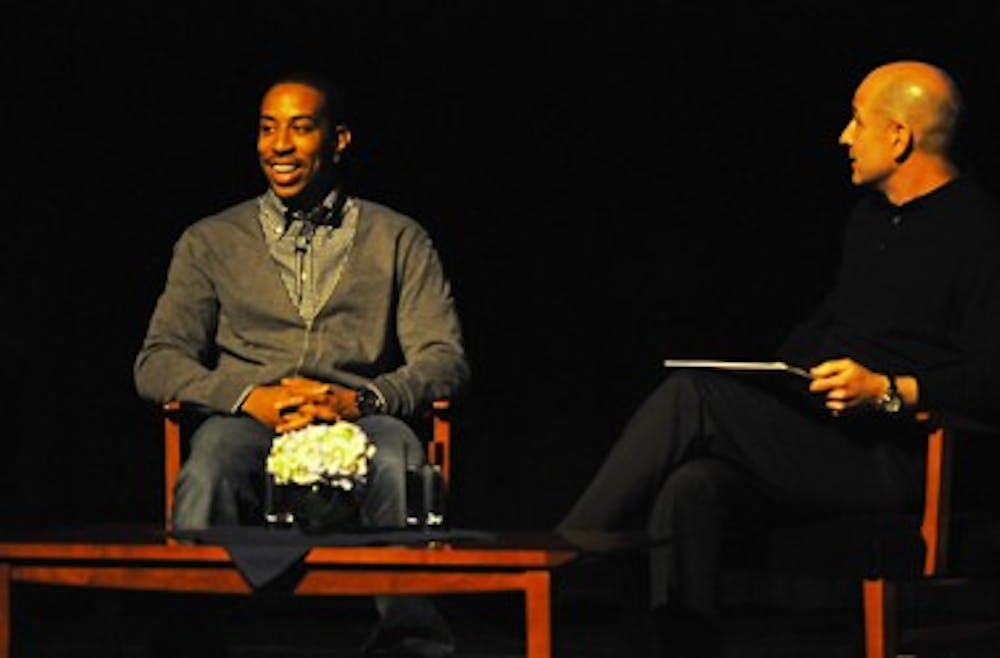
Before Tuesday night, it might have been hard to believe Wharton would host a rapper to talk about social impact and financial success.
The Lauren and Bobby Turner Social Impact Executive Series began in 2010 to instill in students the importance of “doing well and doing good.” Andre Agassi spoke last year and Magic Johnson the year before.
At 35 years old, Ludacris is not only a successful musical artist, actor and producer, but also the founder of the Ludacris Foundation, which aims to foster economic development in struggling communities.
Ludacris reminded the audience how important it is to lead by example, emphasizing that “it’s not about the money, but giving your valuable time to empowering the youth.”
Over 2,000 people RSVP’d to hear Ludacris speak at the packed Zellerbach Auditorium.
Bobby Turner introduced the guest speaker by sharing his own path to happiness and success. He reminded the audience that these two elements don’t necessarily go hand in hand. “Wealth only guarantees a more comfortable form of misery,” he said.
Rather, Turner said, the greatest source of happiness is “the power to have a positive impact on other people’s lives,” he added.
Ludacris initially discussed his childhood and the impact of being raised in a “soulful household” full of music.
After moving to Atlanta to finish high school, he made music his priority and set his sights on getting discovered.
He reinforced the importance of having “that drive and being extremely persistent,” explaining how he climbed the ranks at an Atlanta radio station until he finally got his big break after meeting Timbaland.
The radio station not only helped launch his music career, but it ignited his passion for civic engagement.
Everyone at the radio station was required to participate in community service. “I started noticing the impact I was having on kids and realized how much I could give back,” Ludacris said.
He eventually founded the Ludacris Foundation with the goal of “helping kids to help themselves.”
Ludacris discussed how his foundation housed and provided for individuals who had fled to Atlanta after Hurricane Katrina.
He reminded the audience the importance of doing more than just giving money but actually getting involved to “give back and reach as many people as [you] possibly can.”
“Be the best you can absolutely be,” he said. Change will come about by “spark[ing] the seed of individuals who want to change the world.”
Wharton senior Carol Jiang said she came to event to hear how someone so involved in pop culture gave back to the community.
“I was very impressed with how genuine [Ludacris] was in the way that he really wants to give back to the community through the many resources he has and wants to put into action.”
Wharton sophomore Lennie Zhu agreed. “He’s a person who has thought through what he believes in and lives by certain principles, which I respect.”
While both Jiang and Zhu admired Ludacris’ good intentions, they were disappointed in how little time Ludacris spent speaking more substantively about his intiatives. “I wish he talked more about what his organization does,” Zhu said.
The Daily Pennsylvanian is an independent, student-run newspaper. Please consider making a donation to support the coverage that shapes the University. Your generosity ensures a future of strong journalism at Penn.
DonatePlease note All comments are eligible for publication in The Daily Pennsylvanian.




